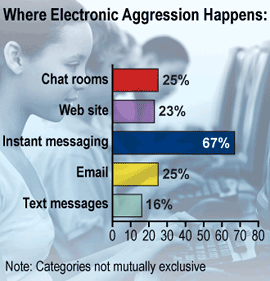
Do you ever feel like your home always has some small thing in need of repair?
Your first instinct may be to pick up the phone and call in a professional, and sometimes hiring a pro is best. But there are plenty of easy fixes and preventive maintenance tasks you can do yourself.
HVAC Maintenance
Keeping your heating, ventilation, and air conditioning (HVAC) system working properly is an absolute must for homeowners. No one wants to be faced with a broken air conditioner on a hot day. Not only is it uncomfortable, but it can also become an emergency situation.
You don’t have to be an HVAC expert to conduct regular maintenance and do minor fixes. According to Family Handyman, a few HVAC maintenance tasks any homeowner can do include keeping your system clean, fixing fins that are out of alignment, and unclogging the condensate drain tube. If you fail to do these, you may end up with a frozen coil due to a dirty filter. When this happens, the first solution is to replace the filter, but if that doesn’t work, it may be time to call in a local AC repair professional to get the problem fixed.
Doors, Windows, and Cabinetry
One of the most common sources of household problems is when things like doors, windows, and cabinetry get old and don’t work as well as they used to. They may be more of an annoyance than a major problem, but most of these issues can be easily fixed.
Doors that stick – According to This Old House, older doors are especially vulnerable to sticking due to changes in the weather. They recommend several different options for fixing this problem, including checking hinges, planing the door, or rehanging it. The right solution will depend on the source of your problem.
Dealing with drafts – Drafty doors and windows can be a problem any time of year. Drafts leave you too hot or cold, while wasting energy and raising your utility bills. Fix those drafts by adding weatherstripping, new door sweeps, or foam tape around windows.
Loose drawer handle – Having a loose handle on a cabinet or drawer is a nuisance, and you can’t always fix it by simply tightening the screw. In this case, an easy fix is to remove the handle and add some washers to the back before screwing it back in place.
Cosmetic Repairs
I’s normal for our homes to start showing wear and tear over time, but many of these cosmetic issues are easy fixes.
Patch a hole – The steps you need to fix a hole in your wall vary depending on whether it’s a small dent, such as a dent made by a doorknob, or a larger hole that needs to be patched. This tutorial from Lowe’s will walk you through the correct steps and tools needed for different situations.
Peeling wallpaper – If you have corners of wallpaper that are peeling, Real Simple recommends using a sheet of paper, covered with wallpaper paste, to get a smooth look when reapplying it. Simply press the peeling wallpaper against the wall with the sheet of paper underneath it, then slide the paper out and smooth any bumps.
Cracked molding – Cracks in molding and baseboards are common in older homes especially, but all it takes is a quick fix to make them look like new. You may need a scraper to remove peeling caulk, and then replace it with a caulking tool and new caulk.
Repair hardwood floors – Even though hardwood floors are made to be durable, any surface that gets foot traffic is prone to issues. Deep scratches take a little more effort than minor surface scratches, but most can be repaired with a little work.
Whether the tasks you tackle are cosmetic or serious, you don’t want to let these problems go. After all, you live in your home, and any problems are likely to get worse if you don’t intervene. Fixing them now will keep your home looking its best and will help you avoid more expensive repairs down the road.

 is broad enough to expand into dozens of articles, so this top 10 list tackles only some of the most staggering results of studies and surveys pertaining to social media. Chances are, if you’re reading this you participate in social media in some way or another, so next time you go to check your Facebook, retweet an interesting link, or choose an Instagram filter for a selfie, think about the ways your brain is processing the seemingly endless stream of information it is taking in.”
is broad enough to expand into dozens of articles, so this top 10 list tackles only some of the most staggering results of studies and surveys pertaining to social media. Chances are, if you’re reading this you participate in social media in some way or another, so next time you go to check your Facebook, retweet an interesting link, or choose an Instagram filter for a selfie, think about the ways your brain is processing the seemingly endless stream of information it is taking in.” 



